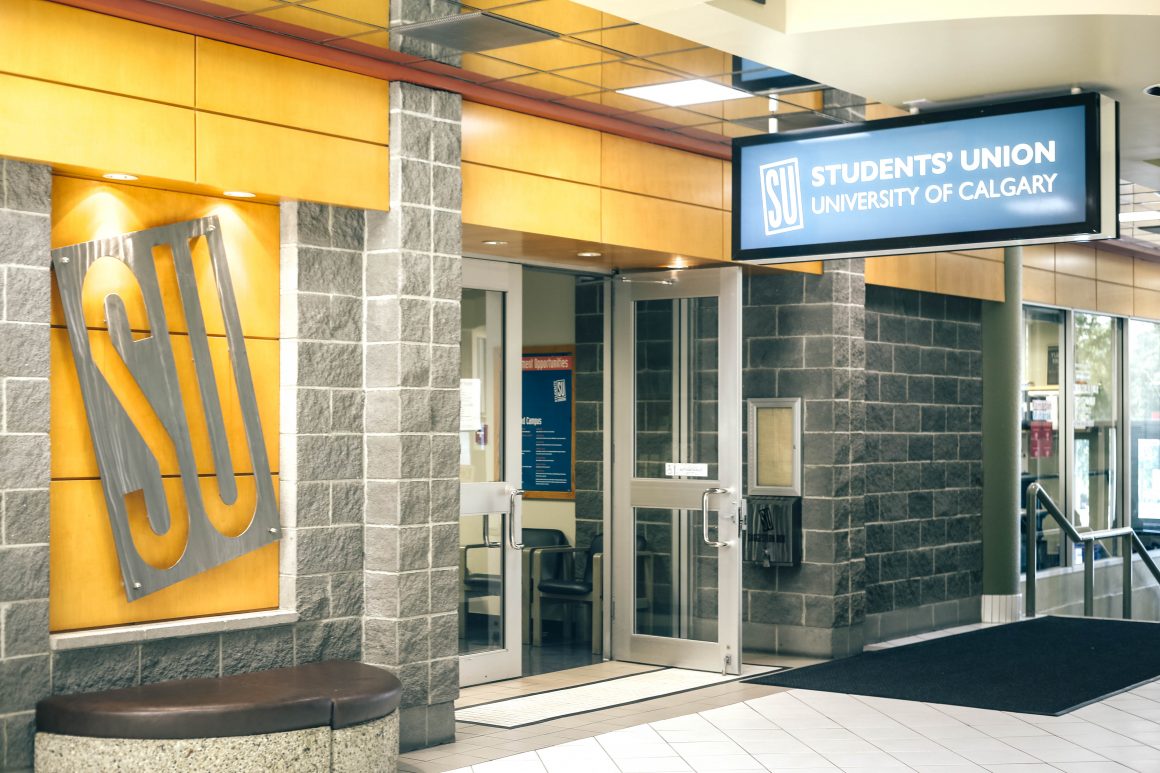
Students’ Union, government raise alarm over proposed UCP policy that would make SU fees optional
By Tina Shaygan, February 8 2018 —
Alberta Minister of Advanced Education Marlin Schmidt and Students’ Union president Branden Cave are concerned about a proposed policy by the United Conservative Party that would make SU membership and its fees optional for students.
Full-time University of Calgary students pay a mandatory fee of $32.50 per semester towards the SU and part-time students pay $14.50. The UCP’s proposed policy would eliminate mandatory students’ unions’ memberships across the province. The party is yet to approve the policy.
The UCP could not be reached for comments, but said in an email that there is no official UCP policy regarding students’ union memberships yet.
“The ideas are only a starting point for discussion and they may or may not be included in any final policy concepts that will be voted on at the AGM in May. We have three more stages of policy development to complete before those final proposals go to that meeting,” the email read.
Cave expressed his concerns about the impact this proposed policy would have on the SU’s finances.
“The concern for us has a lot to do with the financial impact this would have particularly on our peer institutions,” Cave said. “Most of our revenues are generated through our businesses, but I think the financial impact on peer institutions across the province would be quite severe.”
Schmidt said he is concerned about the services that would have to be cut if mandatory students’ union fees were eliminated.
“I think that would be very devastating to student life on campus,” Schmidt said. “Unions provide a ton of valuable services to students and without the ability to provide those services, life on campus for students would suffer greatly.”
At the U of C, the SU runs events such as the Undergraduate Research Symposium, Bermuda Shorts Day and Frostbite. The SU also operates businesses including Stör, the Den and Black Lounge and MacEwan Conference and Events.
Cave added the proposed policy could impact the organization’s advocacy efforts.
“It’s going to substantially weaken our voice in the provincial setting and our ability to advocate, not only to government but also to the [U of C],” Cave said.
Cave said he hopes that the SU will eventually become financially stable enough that if the proposed policy were to become legislation, the SU could continue operating.
“My hope is that we’re in a strong enough financial situation through our businesses and other revenue sources to be able to sustain ourselves,” Cave said. “It’s still a substantial hit to an organization. If [the proposed policy] were to occur I’m sure the executives, the Students’ Legislative Council and staff at that point would be able to take a good look to decide what needs to be done to still best serve students.”
Schmidt added that he thinks this proposed policy is part of a larger problem.
“It really looks like [the UCP] are not valuing universities in general,” he said. “The policy proposals they’re putting forward are thinly veiled attempts to cut funding to universities.”
A voluntary students’ union membership had previously been a Wildrose Party policy but had never become legislation. Under the Post-Secondary Learning Act, students’ associations must exist and operate at the province’s public post-secondary institutions.
Cave said some students may be in support of policies such as the one proposed by the UCP because “they don’t understand the value that student associations or student unions provide to students and Albertans in a broader context.”
“How does [the SU] make sure that students know what value we give them and this can come down to many different ways in letting them know what opportunities we provide and the resources we have for them?” Cave asked. “I think what we need to do is always make sure students feel and understand the value we provide them.”
Schmidt added that for students dissatisfied with how their current student executives represent them, the best course of action is to get involved with the system.
“Student elections are coming up and if you think that the current student executive is not serving you well or responsive to students, then get involved and make the students’ union better,” Schmidt said, “The answer to a students’ union that isn’t doing a good job isn’t to eliminate it. It’s to work to improve it.”
